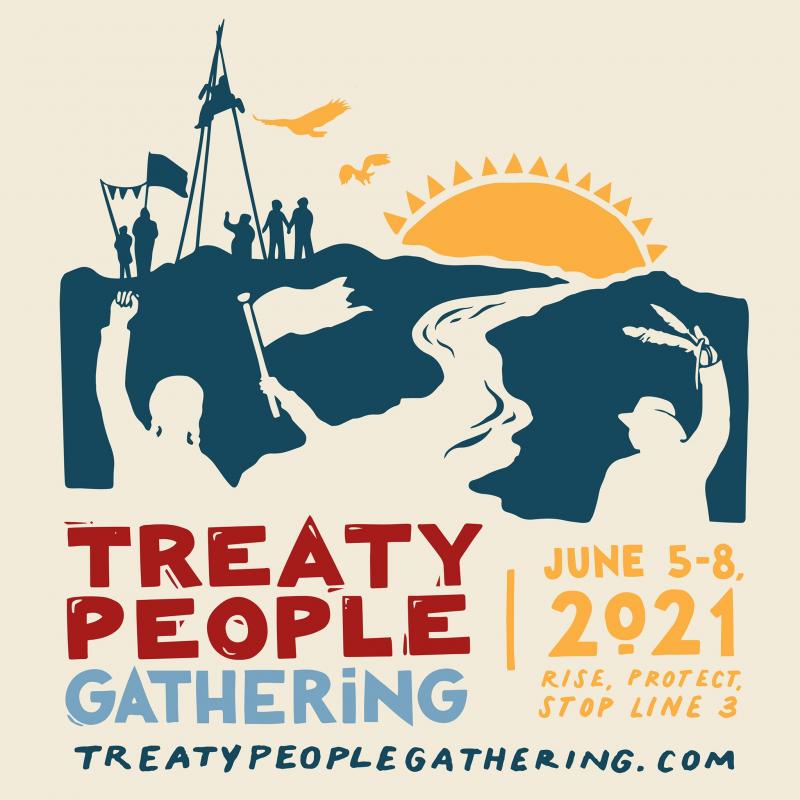For the last seven years, Anishinaabe women and their allies have said “NO” to Enbridge Energy’s proposal to expand its destructive Line 3 tar sands oil pipeline. They work tirelessly to protect their homelands, their wild rice beds—sacred and necessary to them as a people—and their women, girls, and other relatives from human trafficking due to the pipeline. Enbridge is a Canadian company that hopes to send over 700,000 barrels of tar sands oil, one of the dirtiest fossil fuel forms, from Alberta, Canada, to Superior, Wisconsin. The pipeline will cross 22 waterways (including the Mississippi twice) and miles of precious wetlands to sell to foreign markets. As Winona LaDuke says, Indigenous leaders and their environmentalist allies have jumped through every legal hoop, attended every public hearing, dotted every “i” and crossed every “t” to stop this pipeline from furthering the colonial project of genocide on this continent.
Despite these organized efforts, in November 2020, the Minnesota government issued the final permits for Enbridge to begin construction. Over the last six months, Indigenous Water Protectors and their non-Native allies have put their bodies in the way of construction. In that time, police have arrested over 250 people for direct actions of sitting in trees, locking themselves to bank entrances, and blocking man camps. The Water Protectors are standing up for Treaty rights, for water and the Earth, and for justice.
Anishinaabe leadership of the movement to stop Line 3 has called for allies from around the continent to join them in Northern Minnesota from 5-8 June (and beyond) to participate in a large-scale, nonviolent uprising. Calling this the ‘Treaty People Gathering,’ organizers hope to propel this issue to the top of the nation’s consciousness and force Biden to act. While some legal cases are still pending in the Minnesota Court of Appeals, the Biden administration could put a stop to the pipeline immediately by cancelling the permits it has issued.
As the ‘Treaty People Gathering’ website says, “Treaty education and protection are not the sole duty of native people. We are all treaty people. Non-native people are living on stolen land and continue to benefit from treaties while not honouring them. It is the responsibility of non-native people to know and respect the obligations included in federal and state treaties. Treaties protect all of us.”
The time is now to join the struggle! If you plan to head to Minnesota from 5-8 June, be sure to register at https://treatypeoplegathering.com/ to learn about accommodations, schedules, trainings, and how to show up in a way respectful of those whose home it is.




